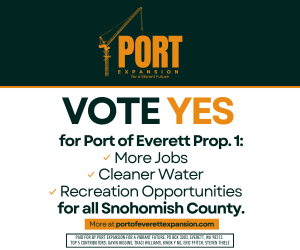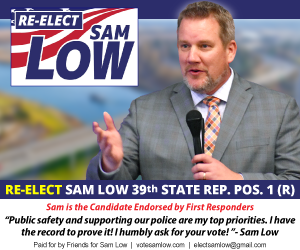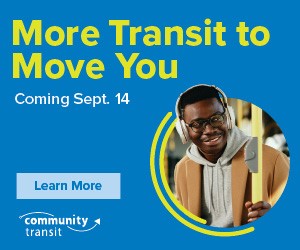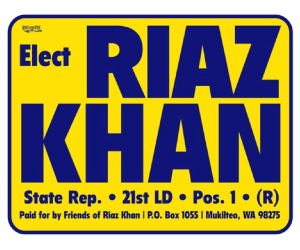LYNNWOOD, Wash., March 15, 2022 – At its Business Meeting, Monday, March 15, the Lynnwood City Council approved an application for grant funding assistance, and discussed the following items: police body cams, virtual council meeting rules, and a Harris Ford development agreement. This was their first in-person meeting of 2022.
The council authorized applications for grant funding assistance to the Recreation and Conservation Office as provided in Chapter 79.A.15 RCW, acquisition of Habitat Conservation and Outdoor Recreation Lands. Council President George Hurst introduced the motion to approve, which was seconded by Councilman Joshua Binda.
This resolution was to allow the city to apply on behalf of its four capital projects, as part of its PARC plan, to secure grant funding. The grant discussion (if awarded) would come during Capital Budget talks at a later date.
The PARC plan is a 6-year list of park capital facilities in the Capital Facilities Plan which includes: Town Square Park acquisition, Strategic Park Acquisition, Scriber Lake Boardwalk Trail, and Scriber Creek Trail Improvements. Every two years the city applies for grants to the state’s Recreation and Conservation Office.
Police body cams
The next item was a fee schedule update on body worn video disclosure actual costs led by Deputy of Police Chuck Steichen, and City Clerk Karen Fitzhum. The discussion was the first of three planned discussions on the subject.
In January of 2022 the Lynnwood PD implemented a Body Worn Camera (BWC) program. Officers within the Bureau of Field Operations, as well as members of the city’s Community Health and Safety Section, wear body cameras and capture recordings that are public records and subject to the Washington State Public Records Act (PRA), Revised Code of Washington (RCW) 42.56.
As explained by the Chief of Police during yesterday’s meeting, the cost and work involved in reviewing and redacting audio and/or video can be substantive, and the Lynnwood Police Department is proposing the imposition of a fee for certain requestors for the reasonable costs of redacting audio/video footage prior to disclosure to support this work.
In two weeks, there will be a public hearing and two weeks after that (April 11), an ordinance will be recommended for adoption by council.
Virtual attendance rules
At council’s last work session there was some discussion regarding virtual attendance and placing a limit on the amount of times council members can remote in.
Council President Hurst moved to make the amendments to the Council Rule 20, Other General Provision, regarding attendance with the added paragraph:
“In person council meetings are the preferred method of council member attendance. Remote attendance should be used on a limited basis. Due to security concerns attendance for Executive Sessions are limited attendance only. Remote attendance will not be allowed for Executive Sessions.”
President Hurst’s motion failed without a second. After some debate on parliamentary procedure between Councilman Jim Smith and Mayor Christine Frizzell, Councilwoman Shannon Sessions reintroduced a motion that amended Council President Hurst’s motion to include limiting remote attendance to three meetings a year, seconded by Councilman Patrick Decker.
Councilman Binda amended the amendment to include “at the discretion of council members” to clarify that the council members would not need approval from council chambers to virtually attend, nor be required to explain why.
Councilman Binda’s amendment did not pass 2-4, which did not include Councilwoman Altamirano-Crosby who was not able to attend the meeting due to connectivity issues via her virtual attendance, an example that Council President Hurst used to explain the importance of in-person meetings.
After Councilman Binda’s motion did not pass, council returned to the original amendment to Council President Hurst’s motion made by Councilwoman Sessions.
Council President Hurst added that due to Gov. Inslee’s proclamation on virtual meetings he wasn’t sure if council even had the authority to put a limit on virtual meetings.
“I still vote yes regardless of what the governor says,” Councilwoman Sessions said.
After a long discussion, Councilman Smith ultimately suggested that the council reschedule voting on their virtual meeting attendance rules until March 28, to allow city staff to review procedure. This was seconded by Council President Hurst. This decision passed unanimously.
Harris Ford Development agreement
A Public Hearing concerning the development agreement on Harris Ford commenced.
This proposed development agreement is for the Harris Ford Dealership to expand at Highway 99 and 200th St SW.
The proposed development agreement will allow Harris Ford to credit the value of the property they would dedicate toward the cost of the proposed street vacation as provided by city code. The agreement also outlines the steps the City and Harris Ford will take to allow the project to begin construction this spring. Development agreements are decided by Council through a quasi-judicial process.
Harris Ford proposes to renovate and expand the front portion of their dealership facing Highway 99. The proposed project includes demolishing the existing satellite showroom; constructing a new single-story satellite showroom of 4,300 square feet for Lincoln automobiles; and expanding and improving the sales lot around the new showroom with on-site parking, landscaping, pedestrian connections, and new lighting.
The agreement will be revisited by council in 20 days to make a decision.



















